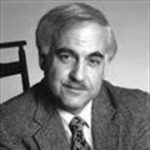Mark B. Moss, PhD
Emeritus Professor, Anatomy & Neurobiology

Biography
Dr. Mark Moss is Emeritus Professor of Anatomy and Neurobiology at Chobanian and Avedisian School of Medicine. Dr. Moss received his doctorate in Psychology from Northeastern University and completed postdoctoral training at Beth Israel Hospital, Harvard Medical School in Neuroanatomy and Neuropsychology. He joined the Department of Anatomy and Neurobiology in 1982 and has served as its Chairman since 1998. Together with Dr. Douglas Rosene, Dr. Moss is co-director for the Laboratory for Cognitive Neurobiology. His studies focus on the neurobiology of learning and memory in non-human primate models, particularly with respect to aging and age-related disease. Specific interests include (1) the interaction of the prefrontal cortices with the medial temporal lobe limbic system in cognition; (2) the separate and combined effects of age and hypertension on cognition and integrity of the blood-brain barrier in a non-human primate model of hypertensive cerebrovascular disease and (3) parallel studies in normal aged humans and patients with MCI and Alzheimer’s disease. Techniques include automated behavioral assessment, functional and structural MR imaging, and an array of immunocytochemical and related anatomical-morphological techniques.
He is recognized for his expertise on the neural basis of cognitive decline in aging and age-related disease, both in non-human primates and humans alike, and the development of “translational” tasks of cognition. He was Program Director for an NIA-NINDS Program Project studying the effects on brain integrity and cognition in a non-human primate model of hypertensive cerebrovascular disease. Dr. Moss is a recipient of an NIH MERIT award for his work on aging and hypertension.
Dr. Moss has directed the 1st year course in Medical Gross Anatomy and currently directs graduate courses in Cognitive Neuroscience, Professional Skills, and Grant Writing, and co-directs the course in the Neurobiology of Learning and Memory. He is the recipient of the Stanley L. Robbins Award, the highest teaching award at the School of Medicine, and is a recipient of the Thomas Robitscher Faculty Award for Excellence in Teaching.
Dr. Moss serves on a variety of scientific and administrative committees at the national, community, university, and medical school levels. He is also the academic advisor for the Clinical Neuroscience Society at BUSM.
Other Positions
- Emeritus Professor, Neurology, Boston University Chobanian & Avedisian School of Medicine
- Member, Evans Center for Interdisciplinary Biomedical Research, Boston University
- Graduate Faculty (Primary Mentor of Grad Students), Boston University Chobanian & Avedisian School of Medicine, Graduate Medical Sciences
Education
- Northeastern University, PhD
- Northeastern University, MA
- University of Massachusetts Boston, BS
Publications
- Published on 9/1/2023
Farrar DC, Killiany RJ, Moss MB, Fink B, Budson AE. Event-related Potentials Corresponding to Decision-making Under Uncertain Conditions. Cogn Behav Neurol. 2023 Sep 01; 36(3):166-177. PMID: 37404132.
Read at: PubMed - Published on 4/28/2023
Moore TL, Medalla M, Ibañez S, Wimmer K, Mojica CA, Killiany RJ, Moss MB, Luebke JI, Rosene DL. Neuronal properties of pyramidal cells in lateral prefrontal cortex of the aging rhesus monkey brain are associated with performance deficits on spatial working memory but not executive function. Geroscience. 2023 Jun; 45(3):1317-1342. PMID: 37106282.
Read at: PubMed - Published on 4/6/2023
Welke LA, Moore TL, Rosene DL, Killiany RJ, Moss MB. Prefrontal and medial temporal interactions in memory functions in the rhesus monkey. Behav Neurosci. 2023 Jun; 137(3):211-222. PMID: 37023305.
Read at: PubMed - Published on 2/8/2023
Moore TL, Medalla M, Iba Ez S, Wimmer K, Mojica CA, Killiany RJ, Moss MB, Luebke JI, Rosene DL. Neuronal properties of pyramidal cells in lateral prefrontal cortex of the aging rhesus monkey brain are associated with performance deficits on spatial working memory but not executive function. bioRxiv. 2023 Feb 08. PMID: 36798388.
Read at: PubMed - Published on 11/15/2021
Uprety A, Moss MB, Rosene DL, Killiany RJ, Moore TL. Curcumin improves reversal learning in middle-aged rhesus monkeys. Behav Neurosci. 2022 Apr; 136(2):126-138. PMID: 34780208.
Read at: PubMed - Published on 7/1/2021
Farris CW, Killiany RJ, O'Donoghue E, Koo BB, Wainford RD, Moss MB, Rosene DL, Moore TL. The relationship of age and hypertension with cognition and gray matter cerebral blood volume in a rhesus monkey model of human aging. Behav Neurosci. 2021 Oct; 135(5):680-692. PMID: 34197136.
Read at: PubMed - Published on 10/29/2018
Brooks C, Eden G, Chang A, Demanuele C, Kelley Erb M, Shaafi Kabiri N, Moss M, Bhangu J, Thomas K. Quantification of discrete behavioral components of the MDS-UPDRS. J Clin Neurosci. 2019 Mar; 61:174-179. PMID: 30385169.
Read at: PubMed - Published on 7/4/2018
Koo BB, Calderazzo S, Bowley BGE, Kolli A, Moss MB, Rosene DL, Moore TL. Long-term effects of curcumin in the non-human primate brain. Brain Res Bull. 2018 09; 142:88-95. PMID: 29981358.
Read at: PubMed - Published on 2/15/2018
Moore TL, Bowley BGE, Shultz PL, Calderazzo SM, Shobin EJ, Uprety AR, Rosene DL, Moss MB. Oral curcumin supplementation improves fine motor function in the middle-aged rhesus monkey. Somatosens Mot Res. 2018 03; 35(1):1-10. PMID: 29447046.
Read at: PubMed - Published on 11/21/2017
Farrar DC, Mian AZ, Budson AE, Moss MB, Killiany RJ. Functional brain networks involved in decision-making under certain and uncertain conditions. Neuroradiology. 2018 Jan; 60(1):61-69. PMID: 29164280.
Read at: PubMed
View 70 more publications: View full profile at BUMC